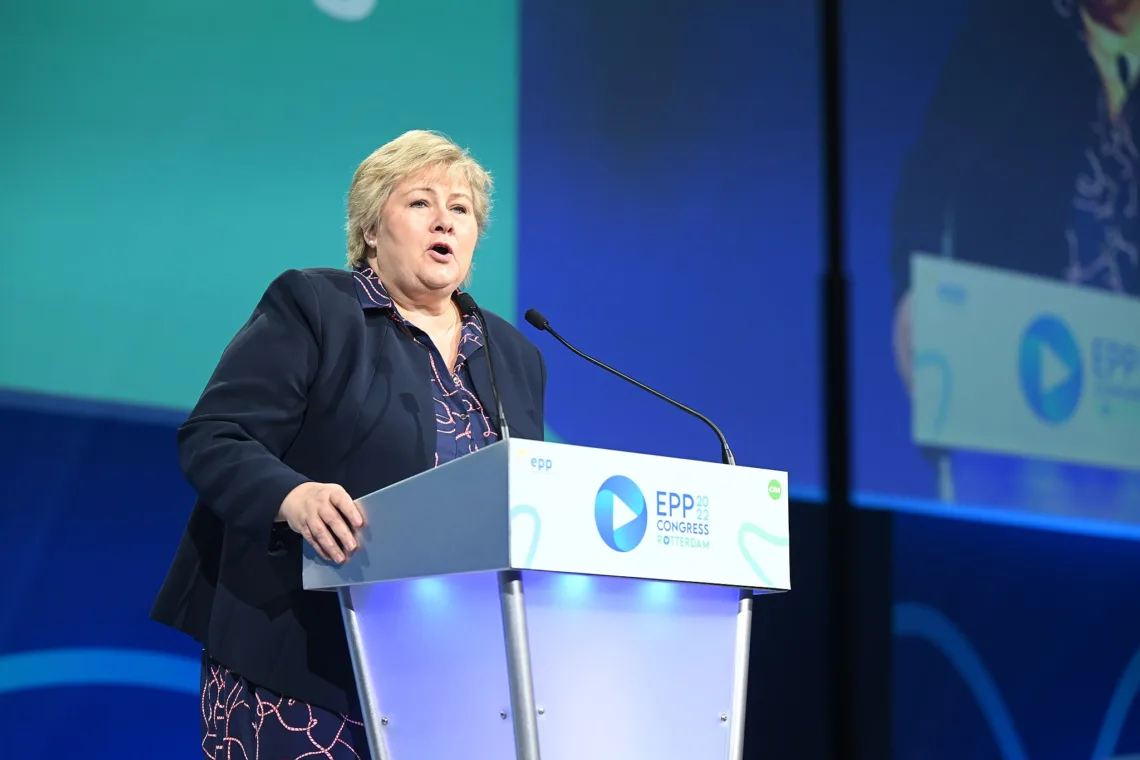On the same day that Fattighuset reports on increasingly long food queues in Oslo, with many Ukrainian refugees, our previous prime minister tells Dagbladet that she does not think the krone exchange rate would have been better with her at the helm.
But I think perhaps the krona is now at a lower level than it should be in order for us to have good control over the Norwegian economy.
Would we have a stronger krone if the Conservatives ruled?
It is impossible to say. This is so complex. There are quite a few such claims from time to time, but then I think you must have very clear answers to what you would do differently, says Solberg. (Daily newspaper)
Solberg does not support investor Øystein Stray Spetalen’s scathing criticism of the Støre government’s economic policy.
She highlights a couple of explanations for the drop in the krone:
It can be a temporary effect. We see in all times of crisis that there is a tendency for the currency markets to flock to major currencies. We saw that when I was prime minister at the beginning of the pandemic too, says Solberg.
So is it also the case that interest rates in Norway are relatively lower than in other countries?
Smaller investments from abroad can also have something to say, but how big that effect is, I think the professionals will have to argue that, says Solberg. (Daily newspaper)
The food queues are growing
Erna Solberg’s summer interview with Dagbladet comes on the same day that the newspaper reports in another case that the queues in front of Fattighuset in Oslo are growing. Among other things, the newspaper has spoken to the chairman of Fattighuset, Lasse Storvik:
We are starting to outgrow our premises. Our capacity is full, and we are working as fast as we can, he says.
Volunteers at Fattighuset have regularly counted how many people in the queue are from Ukraine. Typically this ranges between 60 and 70 percent.
Storvik believes this is because the threshold for using the services at Fattighuset is lower than at the other voluntary organisations in the city.
It feels much freer to come here. Here, no one asks questions, he points out.
In recent months, they have also seen new groups, who have not used the offer before, come to get food or clothes.
Some ordinary workers come regularly. We also see a number of older disabled people. They have kept going for a while, but now it doesn’t work anymore. The electricity goes up, the rent goes up. Then it’s just not enough for them to manage. (Daily newspaper)
Do not want a new Euro debate
In 2007, the Conservative Party wanted to tie the Norwegian krone to the euro, but Erna Solberg does not want a new debate about this now.
We were hung because we wanted to join the euro. But at the time the krone exchange rate was very strong and it was a real challenge for the export companies. We found that it would be less damaging if we had tied ourselves to the euro then than previously.
But she does not want to open that discussion again.
Economic realities are economic realities. There is no quick fix. If we had the euro now, we would have had a better krone exchange rate, but poorer competitiveness for the companies. (Daily newspaper)
The state and fish exporters are among the industries that profit from the low krone exchange rate, but Dagbladet does not ask any follow-up questions about how the exchange rate impacts companies that have to import their goods and who have no other choice but to pass on the increased import costs to consumers.

